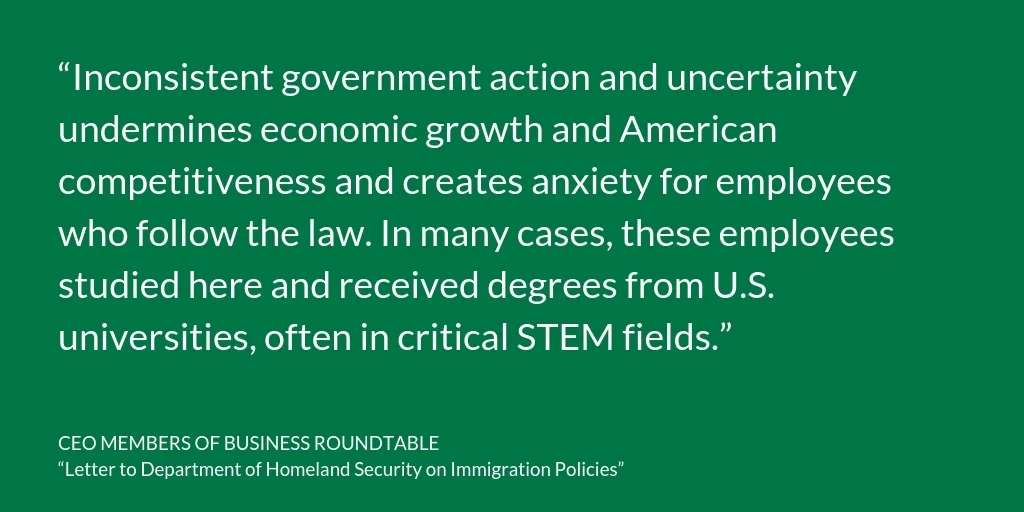Lee Francis Cissna is the multilingual son of a Peruvian immigrant and son-in-law of a refugee from Palestine. He is also the Director of US Citizenship & Immigration Services (USCIS), and has overseen some of the Trump administration’s toughest immigration policy changes. Politico interviewed a selection of Cissna’s current and former co-workers, classmates, and friends, in order to obtain a better understanding of the man involved with many of the harsh Trump administration policy changes, including the recent “zero-tolerance” policy which resulted in thousands of family separations. “We’re pretty stunned that a guy who is compassionate, funny, proud of his immigrant mother from Latin America, that he would now be one of the key architects of the seemingly heartless policy of separating families,” Dan Manatt, a documentary filmmaker and former classmate of Cissna’s at Georgetown Law School, tells Politico.
Read moreInconsistent Government Action
Adorn Me
Tanda Francis, a Brooklyn-based artist who incorporates Victorian and colonial ornamentation into her work, is known for focusing on monumental African female heads and masks and ancient customs and rituals. Adorn Me, an impressive sculpture in Fort Greene Park, is inspired by African sculptural tradition, including Ife portraiture, and is meant to address the under-representation of positive images of and by people of African descent in public artworks and also “provide a healing message during a time of heated debate over monuments erected as symbols of oppression and control.” The sculpture will be in Fort Greene Park through August 17, 2019.
The New York Times: “$10 Million from FEMA Diverted to Pay for Immigration Detention Centers, Document Shows”
The Department of Homeland Security (DHS) reallocated funds for use by the Federal Emergency Management Agency (FEMA) for hurricanes and natural disaster relief to Immigration and Customs Enforcement (ICE) in order to pay for additional detention centers and removal operations, according to a document released by Senator Jeff Merkley of Oregon last week. Merkley released the thirty-nine-page document to The Washington Post as Hurricane Florence approached the East Coast. The document notes a transfer of funds, originally meant for efforts including “Preparedness and Protection” and “Response and Recovery,” that was transferred to ICE for detention beds, transportation, and removal programs. “At the start of hurricane season – when American citizens in Puerto Rico and the U.S. Virgin Islands are still suffering from FEMA’s inadequate recovery efforts – the administration transferred millions of dollars away from FEMA. And for what? To implement their profoundly misguided ‘zero-tolerance’ policy,” Merkley says.
Read moreGood Lawyers
So You Wanna Work in America?
The Topic, a new entertainment and storytelling studio from First Look Media, has a quiz that might be helpful and informative for those looking to work in the US or at the very least want to learn more about the requirements and what might disqualify applicants. The flow chart begins with some “light questions first” including “Have you ever been convicted for using drugs?” and “Have you ever been caught visiting a prostitute?” and, referencing Trump’s travel ban, also asks, “Hey, you’re not from Iran, Yemen, or Syria, are you?” The quiz goes on to discuss eligibility for various work visas and Green Cards including the O-1, H-1B, L-1, and seasonal employment. Go on, see how far you get.
USCIS Now Accepting Copies of Negative O Visa Consultations Directly from Labor Unions
US Citizenship & Immigration Services (USCIS) announced that effective immediately the agency will now accept copies of negative consultation letters directly from labor unions relating to O nonimmigrant visa petition submissions. In general, USCIS requires consultation letters from a US peer group, labor organization, or management organization for O petitions. Usually, the petitioner submits the necessary O visa consultation with the petition. While that requirement remains unchanged, labor unions should now send copies of negative O nonimmigrant consultation letters to UnionConsultationMailbox@uscis.dhs.gov.
Read moreVisa Options for Internships and Training Programs in the US
For foreign students who want to boost their resume with real-world experience, or young professionals starting out their career who want to sharpen their skills, or even seasoned professionals who want to round out their global industry knowledge, internships and training programs in the US might be excellent opportunities. When foreign nationals secure internships/training programs in the US, there are three nonimmigrant visa types in particular that may be most appropriate: the J-1, H-3, or B-1. In this post, we explain the basics of each visa type and also include a chart that breaks down in more detail their differences. As always, foreign nationals should consult with an experienced immigration attorney when deciding what the best visa option is for their particular circumstances.
Read moreThe Atlantic: “The Thousands of Children Who Go to Immigration Court Alone”
Immigration courtrooms in the San Francisco Bay and surrounding areas have seen an increase of “unaccompanied alien children” (UAC) in court for removal proceedings. Most of these children, sometimes as young as four years old, do not have legal representation. In 2017 California had the second highest number of UACs in removal proceedings. While volunteer immigration attorneys, state funding, and organizations that provide legal aid to these immigrant children are more easily accessible in larger cities such as San Francisco, for immigrant children hundreds of miles away in the Central Valley and Fresno County areas, these resources are hard to access. “We’ve seen children from the Central Valley who have been to court four or five times without an attorney,” Katie Annand, managing attorney for the Kids in Need of Defense (KIND) organization, says. “They’ve had to pay $200 each time to get a ride up here for court, so they are coming up to court just to say ‘I don’t have an attorney.’”
Read more





